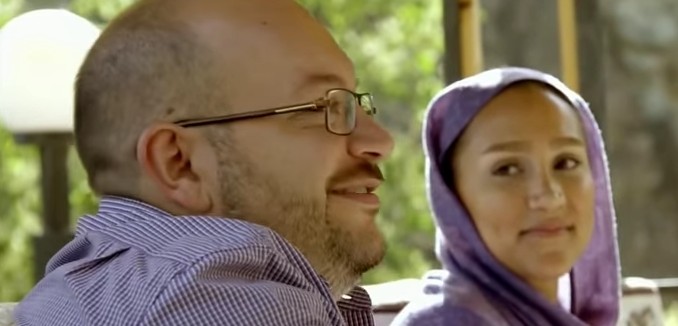Calling the prosecution of reporter Jason Rezaian an indication of “Iran’s ruthless internal power struggles and the politicization of its judicial system,” an editorial in The Washington Post Thursday warned that “well-meaning foreign visitors … are vulnerable to being seized as hostage.”
The Rezaian case has become a showcase for Iran’s ruthless internal power struggles and the politicization of its judicial system. The 39-year-old reporter, who was born and raised in California but is an Iranian and U.S. citizen, has been described by Iranian Foreign Minister Mohammad Javad Zarif as “a good reporter” and a “friend.” Yet he has been held in Tehran’s notorious Evin Prison since July 22, apparently at the instigation of intelligence and judicial authorities. …
Both Post Executive Editor Martin Baron and the White House quickly pointed out that the accusations are absurd. As Mr. Obama said, Mr. Rezaian is guilty of doing nothing more than “writing about the hopes and fears of the Iranian people.” His attorney’s statement said the case file she read offered no evidence to back up the charges. But she also told Mr. Rezaian’s family that she does not expect to be allowed to meet with him again before his trial, making it difficult to prepare a defense.
This blatantly unjust treatment is showing Iran to be a country where well-meaning foreign visitors, including potential Western investors, are vulnerable to being seized as hostages or used as pawns in power struggles they have nothing to do with. It shows that the judiciary does not observe minimal standards of fairness or even adhere to Iran’s own laws. It suggests that the government of President Hassan Rouhani cannot be counted on to deliver on its international commitments — including the prospective nuclear accord — because of its inability to control the intelligence services, Revolutionary Guard and other reactionaries.
The editorial called on President Barack Obama to “to make clear to [Iranian Supreme Leader Ayatollah Ali] Khamenei that he is serious about the commitment he made to the Rezaian family,” and that until Rezaian is released, “Iran should pay a price.”
Rezaian was arrested last July, along with his wife, Yeganeh Salehi, who was later released. In separate interviews in September, neither Zarif nor Iranian President Hassan Rouhani criticized the incarceration of the journalist. A December editorial questioned if Iran could be trusted to keep its commitments in a nuclear deal if it could not be trusted to treat Rezaian fairly, asking, “If Iranian officials are unresponsive in the case of Mr. Rezaian, how can they be expected to deliver on commitments they make with respect to the nuclear program?”
A later editorial asked more generally if the administration would “restrain itself in the interest of preventing a rupture of the nuclear accord and in order to ‘improve relations over time’” in the face of continued Iranian provocations.




